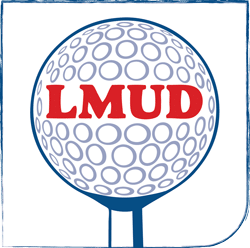Beneficial reuse prevents wastewater discharge, promotes conservation

 As published in the Lake Travis View, August 2021
As published in the Lake Travis View, August 2021
There’s been a lot of talk lately about the algae blooms around the Austin area. As a water provider that uses the Highland Lakes as our only source for raw water, we know that while most algae are harmless, some contain cyanotoxin that can be harmful to both people and pets.
However, because water utilities like the Lakeway Municipal Utility District carefully test for a variety of substances during the treatment process at the water plant, drinking water remains safe. It’s the discharge of treated wastewater back into these bodies of water that has raised concerns as a possible cause of excess algae blooms. However, Lakeway MUD as well as many other water utilities on the Highland Lakes are subject to a discharge ban that prevents this form of disposal. Since the 1970s, Lakeway MUD has been a leader in the beneficial reuse of treated wastewater for land application, a massive conservation effort.
Since the 1970s, Lakeway MUD has been a leader in the beneficial reuse of treated wastewater for land application, a massive conservation effort.
With an expanding population, the demand for water is increasing at a rapid rate while the supply of readily available fresh water is decreasing. Treated wastewater (effluent) has been proven to be a viable solution to significantly conserve the supply of potable water. “Our reuse (or reclaimed or recycled) water is wastewater that has been treated to the highest standards,” said Earl Foster, Lakeway MUD’s general manager. “It’s not approved for drinking; however, it is a perfectly safe and environmentally friendly option for irrigation, which attributes about 60% of water use. As we are able to expand our recycled water system to more residential locations, it decreases the demand on our water plant and the amount of water we have to pull out of Lake Travis.”
Lakeway MUD was one of the first in the state to implement a water reuse system to irrigate the Yaupon Golf Course in 1975. We went on to make history in 1994 by becoming the first water provider in Texas to utilize recycled water in a residential area: Estates of Lakeway Hills. Today, we have storage for over 90 million gallons of recycled water that is used for irrigating several local golf courses, the city’s medians, parks, and various commercial and some residential locations. “We’re currently saving about 30% of our potable water from being used for irrigation purposes,” Foster said.
The Highland Lakes, including Lake Travis, are susceptible to drought so minimizing how much water is withdrawn is an important conservation effort. Before COVID, Christianne Castleberry, LMUD’s engineer consultant, participated in a panel session on the topic of “Reuse as a Resource” alongside representatives from the city of Austin and the U.S. Bureau of Reclamation. “LMUD is saving roughly 158 million gallons per year from being taken out of Lake Travis,” she said.
Castleberry made note that in response to the severest drought on record for the Highland Lakes, Foster spearheaded the formation of the Highland Lakes Firm Water Cooperative in 2012. This coop advocates for firm water interests within water management planning efforts to ensure enough water is allocated for potable water use, especially in times of drought.
Since the Highland Lakes are considered a reservoir, pollutants that enter are likely to remain longer and accumulate more than, for example, in a flowing river. In the late 1980s, the Texas Commission on Environmental Quality issued the Highland Lakes discharge ban rule that prohibits affected water utilities from discharging treated wastewater back into the lakes, making land application the only option for Lakeway MUD, as well as many other regional water providers. Other water bodies have watershed protection rules in place, however no other lakes in Texas have a similar ban on wastewater discharge.
In 2007, the 80th Texas Legislature amended Section 13.146 of the Texas Water Code to require each retail public utility that provides potable water service to 3,300 or more connections to submit a water conservation plan to the Texas Water Development Board. As such (and because we care about the vitality of the water source for the community we serve), water providers like Lakeway MUD implement strategies for reducing the consumption of water, reducing the loss or waste of water, improving or maintaining the efficiency in the use of water, and increasing recycling and reuse of water. These strategies include efforts by our customers, such as following irrigation schedules and practicing water saving methods.
Written by Stephanie Threinen, public information liaison for the Lakeway Municipal Utility District. Earl Foster is the general manager of LMUD.

 You are now being redirected to the WaterSmart page.
You are now being redirected to the WaterSmart page.